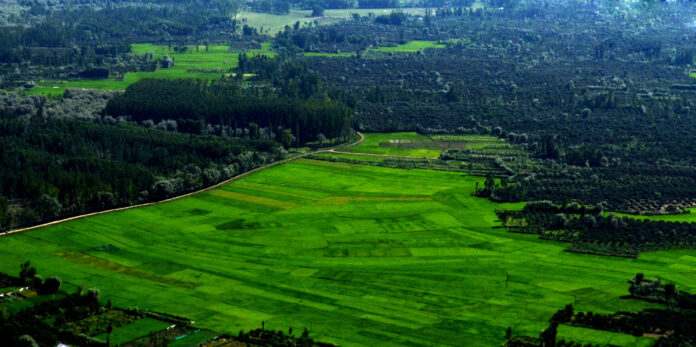Author: Auqib Javeed
Affiliation: Independent Kashmiri Journalist
Organization/Publisher: article 14
Date/Place: January 27, 2021/India
Type of Literature: Report
Word Count: 3,000
Keywords: Kashmir, Islamophobia, State land, Roshni Act, India, Land grab
Brief:
Muslim-dominated Kashmir, a region under Indian rule, continues awaiting its final political settlement according to nearly 20 UN resolutions and statements. With rising nationalism spiced Hindutva, Muslims in the UN-designated disputed region have long feared that India will attempt demographic changes, if and when a referendum is held. This article explains how the local Jammu and Kashmir Union Territory administration (led by pro-India politicians) had drafted a law called the Kashmir State Lands Act in 2001, known as the Roshni Act, that transferred state land (against a said amount) to the land occupant who inhabited it. The amounts received would be used to fund hydroelectricity projects. The expectations were not met as several amendments reduced rates and made other changes. Soon after India illegally annexed the region on August 5, 2019, the Hindu community, mostly linked to the ruling Bharatiya Janata Party (BJP), in the Jammu region raised a bogey of ‘Land Jihad’ – claiming that Muslims were taking over the lands, raising questions about the Roshni Act that was implemented by a former Chief Minister (region’s top executive) who happened to be a Muslim. Indian Hindu-dominated media magnified these allegations, promoting the rumor and spinning it until the Indian agencies filed cases to probe. The top court in Kashmir termed the land transfer act null and void, and asked the administration to revoke the allotments and reclaim the lands. But now, questions have been raised against the courts for their justice delivery system. As the process had only started, however it is now being rolled back quickly and quietly because the Delhi-controlled regional administration in late 2019 released a list of beneficiaries of the land-transfer law revealing that it was mostly Hindus who took land under the Roshni Act. According to the National Conference (the region’s main political party), “a significant number of beneficiaries were members of the BJP” including one of the party’s legislators. “Muslims accounted for only 2.63% of beneficiaries of the Roshni scheme.” Caught off guard, the rhetoric of Land Jihad has faded away. The administration now says it has stopped any process that would harm the beneficiaries – in this case mostly Hindus.
By: Riyaz ul Khaliq, CIGA Non-Resident Research Associate




